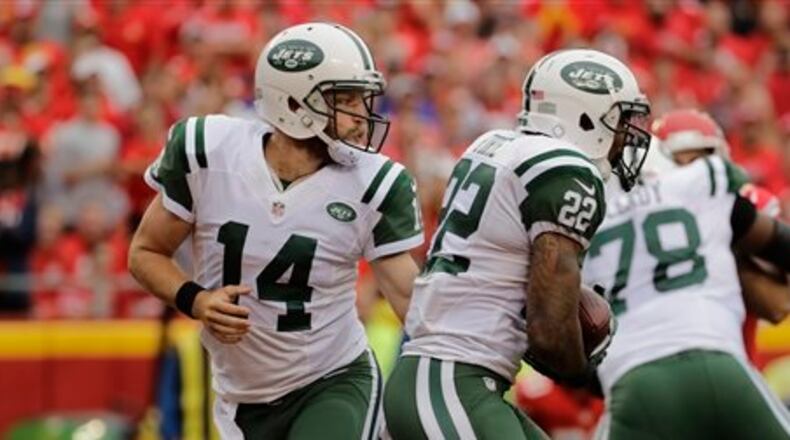Attention NFL shoppers: The player store will be opening soon, with free agency starting this week.
The good news is, teams have more money to spend. The salary cap has increased to $167 million per team, a bump of more than $12 million since last year.
The bad news is, the shelves are pretty picked over, and some of the dazzling items that were previously advertised, well, they're not available anymore. Most notably, Pittsburgh used its exclusive franchise tag on running back Le'Veon Bell, essentially guaranteeing the star running back will play for the Steelers next season.
Free agency begins at 4 p.m. EST today, but interested teams could begin talking contract numbers Tuesday with the representatives of players due to become unrestricted free agents.
For a lot of teams, the focus is on keeping the players they already have. That's the case, for instance, for the Miami Dolphins and receiver Kenny Stills, who is due to become a free agent.
"I hate free agency," Dolphins coach Adam Gase said. "You just want to get your guys back. Kenny and myself have a very close relationship. The worst thing about the NFL is sometimes that doesn't matter. Sometimes the money is what guys are looking for. Kenny, obviously, he'd love to stay here, but he's going to stay for the right price and what's comfortable for him, and I don't think anybody would blame him for that."
Some teams have lots of money to spend. Cleveland ($102 million of cap space), San Francisco ($93 million) and Jacksonville ($71 million) occupy the top three spots on that list, but those teams combined for six wins last season, so they have plenty of holes to fill. Meanwhile, the bargain hunters at the bottom of the list - the Los Angeles Chargers ($5 million), Kansas City ($4 million) and Dallas ($3 million) - are going to have to rely more on filling needs through the draft.
It's common for teams to overpay for free agents, usually when there's a bidding war, and the ripple effects of that can damage more than just the wallet.
"You pay a guy a lot of money and you plug him into the locker room, well, the locker room is watching," said Chris Ballard, the Indianapolis Colts' general manager. "So to me, that guy has to be a worker. He has to be a good teammate. He has to earn that money, and earn it right ... . That's where my fear of free agency comes in."
There are some big-name players available. Minnesota declined to pick up the contract option on All-Pro running back Adrian Peterson, and Kansas City parted ways with Jamaal Charles, the club's all-time leading rusher. But both of those players are in their early 30s, old for the position, and are expected to be quite expensive.
The New York Jets are going through an extreme makeover, saying goodbye to cornerback Darrelle Revis, receiver Brandon Marshall, quarterback Ryan Fitzpatrick and longtime center Nick Mangold, who was at Disney World with his family when he learned the team had cut him loose after 11 seasons.
"I was hoping there was going to be a negotiation of some sort to get something worked out," Mangold told the New York Post. "But when you're told, 'Hey, we're cutting you, and good luck,' that really caught me off guard."
Mangold, 33, is a victim of the 30-something purge, with teams opting for younger and cheaper talent. Among the aging stars available in this free-agent pool are defensive linemen Julius Peppers (37), Vince Wilfork (36), Trent Cole (34) and DeMarcus Ware (34), and offensive linemen Andrew Whitworth (35) and Jahri Evans (33).
Much of the off-season buzz has surrounded a few high-profile quarterbacks. Washington and Kirk Cousins have not come to an agreement on a long-term deal, although the team reportedly has offered $20 million a season. Dallas is still trying to figure out what to do with Tony Romo, now that Dak Prescott has made him expendable. And New England will surely say goodbye to Jimmy Garoppolo, Tom Brady's backup, if the right offer comes along.
"It's an ongoing process and a moving puzzle where you're trying to hang onto your top players all the time, your core players," Seattle Seahawks GM John Schneider said. "A lot of times when we do those deals, there's going to be some tough decisions to be made. There are going to be some guys that have to leave. It's just part of the game."
About the Author
Keep Reading
The Latest
Featured


